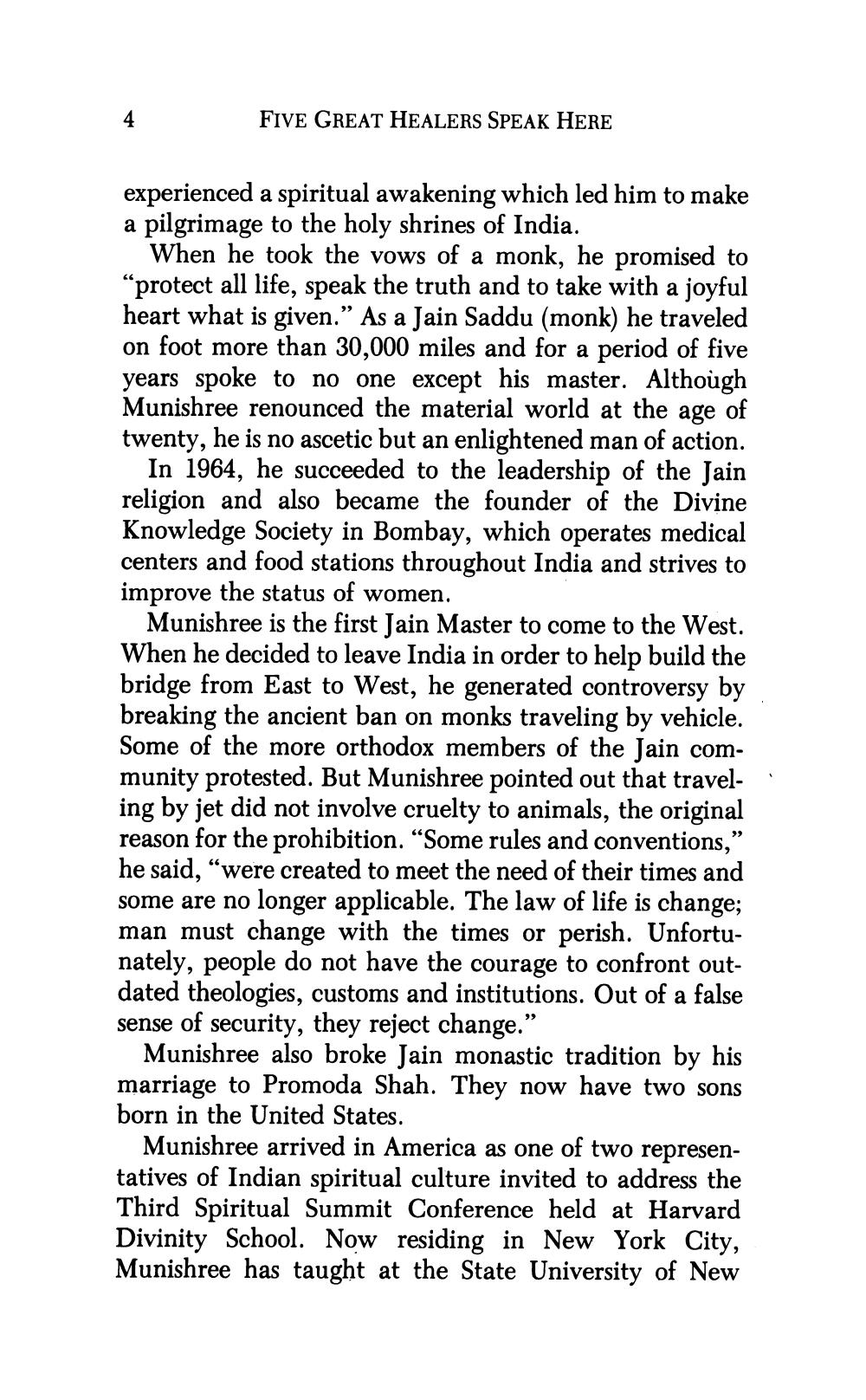________________
FIVE GREAT HEALERS SPEAK HERE
experienced a spiritual awakening which led him to make a pilgrimage to the holy shrines of India.
When he took the vows of a monk, he promised to "protect all life, speak the truth and to take with a joyful heart what is given.” As a Jain Saddu (monk) he traveled on foot more than 30,000 miles and for a period of five years spoke to no one except his master. Although Munishree renounced the material world at the age of twenty, he is no ascetic but an enlightened man of action.
In 1964, he succeeded to the leadership of the Jain religion and also became the founder of the Divine Knowledge Society in Bombay, which operates medical centers and food stations throughout India and strives to improve the status of women.
Munishree is the first Jain Master to come to the West. When he decided to leave India in order to help build the bridge from East to West, he generated controversy by breaking the ancient ban on monks traveling by vehicle. Some of the more orthodox members of the Jain community protested. But Munishree pointed out that traveling by jet did not involve cruelty to animals, the original reason for the prohibition. “Some rules and conventions," he said, “were created to meet the need of their times and some are no longer applicable. The law of life is change; man must change with the times or perish. Unfortunately, people do not have the courage to confront outdated theologies, customs and institutions. Out of a false sense of security, they reject change.”
Munishree also broke Jain monastic tradition by his marriage to Promoda Shah. They now have two sons born in the United States.
Munishree arrived in America as one of two representatives of Indian spiritual culture invited to address the Third Spiritual Summit Conference held at Harvard Divinity School. Now residing in New York City, Munishree has taught at the State University of New




